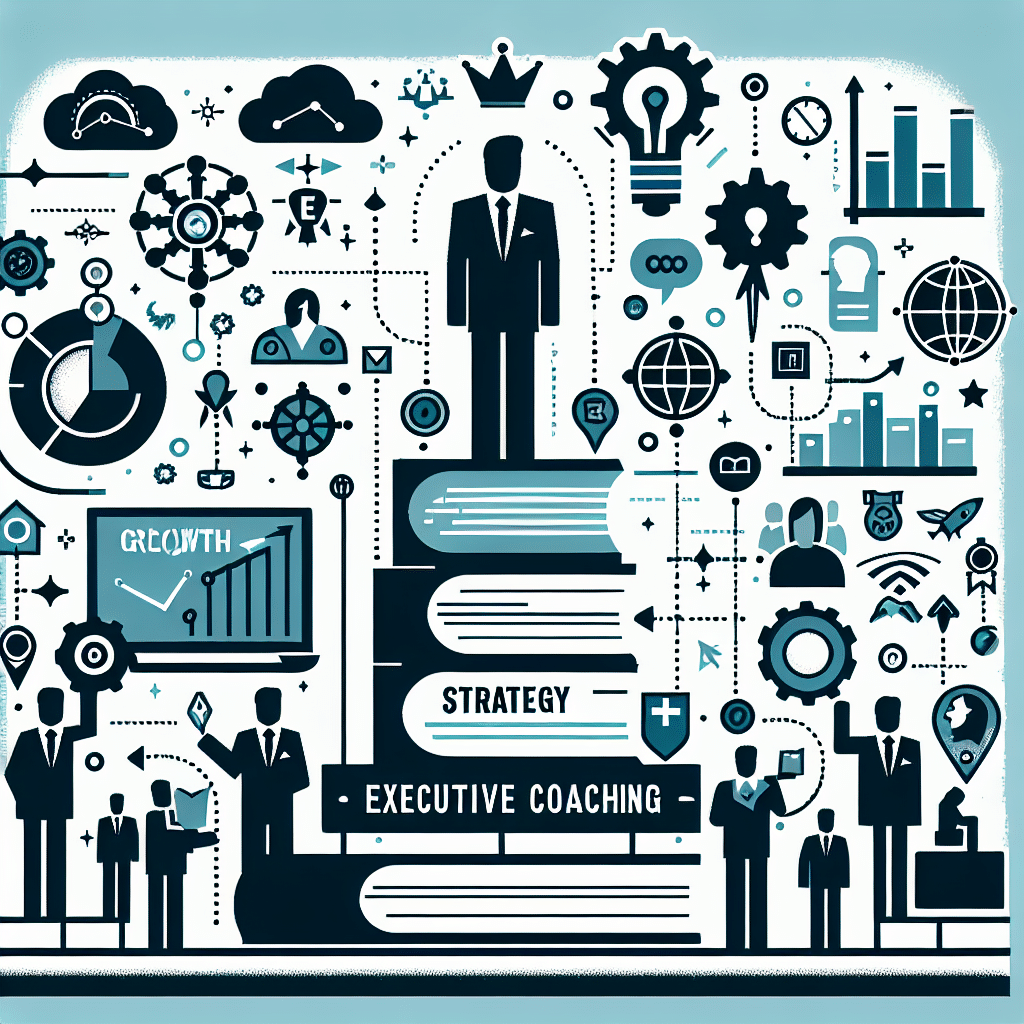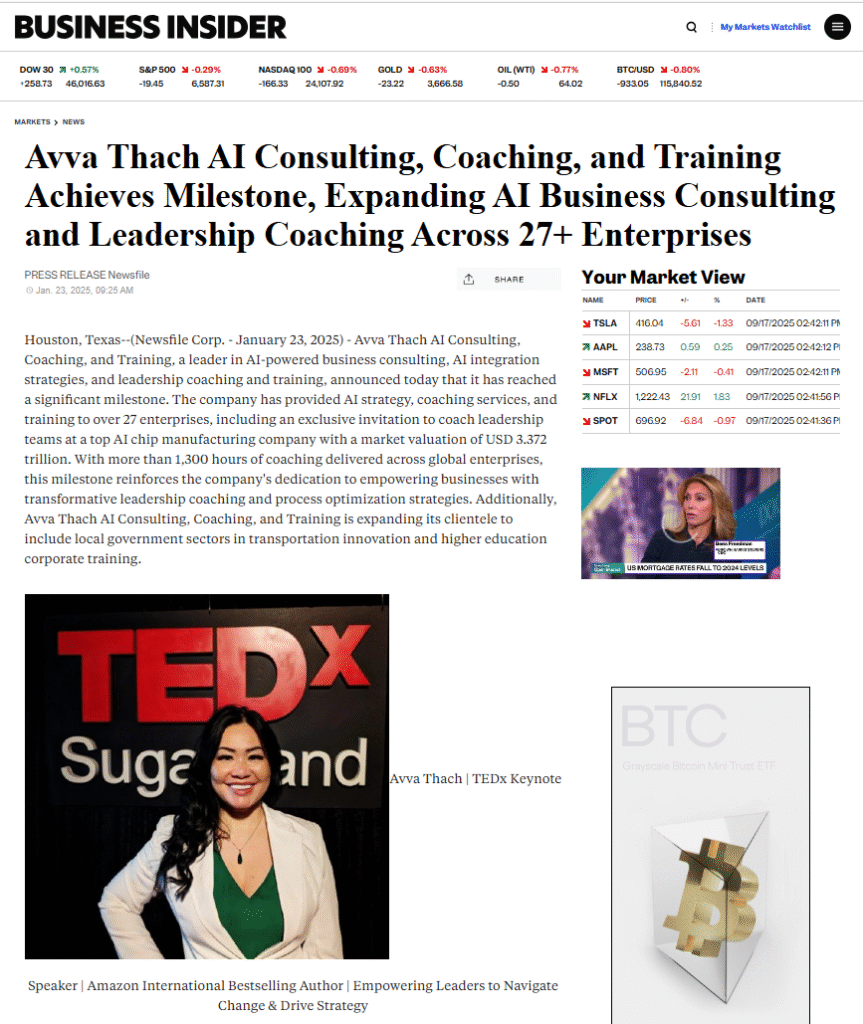Executive and leadership coaching has emerged as a vital component in the development of effective leaders within organizations. This specialized form of coaching focuses on enhancing the skills, capabilities, and overall effectiveness of individuals in leadership positions. Unlike traditional training programs, which often adopt a one-size-fits-all approach, executive coaching is tailored to the unique needs and challenges faced by each leader.
Coaches work closely with executives to identify their strengths and weaknesses, providing personalized guidance that fosters growth and development. The role of an executive coach extends beyond mere skill enhancement; it encompasses a holistic approach to leadership development. Coaches serve as trusted advisors, offering insights that help leaders navigate complex organizational dynamics and make informed decisions.
They facilitate self-reflection, enabling leaders to gain clarity about their values, motivations, and leadership styles. This introspective process is crucial for fostering authentic leadership, as it encourages individuals to align their actions with their core beliefs, ultimately leading to more effective and impactful leadership.
Key Takeaways
- Executive and leadership coaching plays a crucial role in developing and enhancing leadership skills.
- The benefits of executive and leadership coaching include improved decision-making, increased self-awareness, and enhanced communication skills.
- When selecting an executive and leadership coach, it is important to consider their experience, expertise, and coaching style.
- Setting clear goals and expectations for coaching is essential for maximizing the impact of the coaching process.
- Developing self-awareness and emotional intelligence is a key focus area in executive and leadership coaching.
Identifying the Benefits of Executive and Leadership Coaching
The benefits of executive and leadership coaching are manifold, impacting both the individual leader and the organization as a whole. One of the most significant advantages is the enhancement of decision-making capabilities. Through coaching, leaders learn to approach challenges with a more strategic mindset, considering various perspectives and potential outcomes before making critical decisions.
This improved decision-making not only leads to better results but also instills confidence in team members, fostering a culture of trust and collaboration. Moreover, executive coaching can lead to increased employee engagement and retention. When leaders are equipped with the skills to inspire and motivate their teams, employees are more likely to feel valued and invested in their work.
This positive shift in leadership behavior can result in higher levels of job satisfaction, reduced turnover rates, and ultimately, improved organizational performance. Additionally, organizations that prioritize leadership development through coaching often experience enhanced innovation and adaptability, as leaders become more open to new ideas and approaches.
Selecting the Right Executive and Leadership Coach

Choosing the right executive or leadership coach is a critical step in ensuring a successful coaching experience. The ideal coach should possess a blend of relevant experience, expertise, and interpersonal skills that align with the leader’s specific needs. It is essential to consider the coach’s background in leadership development, as well as their familiarity with the industry in which the leader operates.
A coach with industry-specific knowledge can provide valuable insights that resonate with the unique challenges faced by the leader. In addition to professional qualifications, the chemistry between the coach and the leader plays a pivotal role in the coaching process. A strong rapport fosters open communication and trust, allowing for deeper exploration of challenges and opportunities.
Leaders should seek coaches who demonstrate empathy, active listening skills, and a genuine interest in their growth. Conducting initial consultations or interviews can help leaders gauge compatibility and ensure that they select a coach who aligns with their values and objectives.
Setting Clear Goals and Expectations for Coaching
| Metrics | Results |
|---|---|
| Number of coaching sessions conducted | 25 |
| Percentage of employees who reported understanding their coaching goals | 90% |
| Percentage of employees who met or exceeded their coaching expectations | 80% |
Establishing clear goals and expectations is fundamental to the success of any coaching engagement. Leaders should begin by identifying specific areas they wish to improve or develop during the coaching process. These goals may range from enhancing communication skills to improving team dynamics or increasing strategic thinking capabilities.
By articulating these objectives upfront, both the leader and coach can create a focused roadmap for their work together. Furthermore, setting expectations regarding the coaching process itself is equally important.
This transparency fosters accountability and ensures that both parties are aligned in their efforts. Regular check-ins throughout the coaching journey can help assess progress toward goals and make necessary adjustments to the coaching approach as needed.
Developing Self-Awareness and Emotional Intelligence
Self-awareness is a cornerstone of effective leadership, and executive coaching provides a structured environment for leaders to cultivate this essential trait. Through reflective exercises and feedback from their coach, leaders can gain insights into their behaviors, thought patterns, and emotional triggers. This heightened self-awareness enables them to recognize how their actions impact others and informs their approach to leadership.
Emotional intelligence (EI) is closely linked to self-awareness and is critical for successful leadership. Coaches often guide leaders in developing their EI by helping them understand their emotions and those of others. Leaders who possess high emotional intelligence are better equipped to navigate interpersonal relationships, manage conflicts, and inspire their teams.
By fostering self-awareness and emotional intelligence through coaching, leaders can create a more positive work environment that encourages collaboration and innovation.
Enhancing Communication and Interpersonal Skills

Effective communication is a hallmark of successful leadership, yet many leaders struggle with articulating their thoughts clearly or connecting with their teams on a personal level. Executive coaching provides leaders with tools and techniques to enhance their communication skills, enabling them to convey messages more effectively and engage their audience. Coaches often employ role-playing exercises or feedback sessions to help leaders practice active listening, assertiveness, and empathy in their interactions.
In addition to verbal communication, non-verbal cues play a significant role in how messages are received. Coaches can help leaders become more aware of their body language, tone of voice, and facial expressions, ensuring that these elements align with their intended message. By honing both verbal and non-verbal communication skills through coaching, leaders can foster stronger relationships with their teams, leading to improved collaboration and overall organizational effectiveness.
Building Effective Leadership and Management Strategies
Leadership is not just about personal effectiveness; it also involves developing strategies that drive team performance and organizational success. Executive coaching equips leaders with frameworks for building effective management strategies that align with their vision and goals. Coaches often introduce concepts such as situational leadership or transformational leadership, encouraging leaders to adapt their styles based on the needs of their teams.
Moreover, coaches can assist leaders in identifying key performance indicators (KPIs) that measure team success. By establishing clear metrics for performance evaluation, leaders can create accountability within their teams while also recognizing achievements. This strategic approach not only enhances team productivity but also fosters a culture of continuous improvement where feedback is valued and utilized for growth.
Overcoming Challenges and Obstacles in Leadership
Leadership is fraught with challenges, from navigating organizational change to managing team dynamics or addressing performance issues. Executive coaching provides leaders with a safe space to explore these challenges openly while developing strategies for overcoming them. Coaches often employ problem-solving techniques that encourage leaders to view obstacles as opportunities for growth rather than insurmountable barriers.
Additionally, coaches can help leaders build resilience in the face of adversity. By fostering a growth mindset, leaders learn to embrace challenges as part of their development journey rather than sources of stress or frustration. This shift in perspective empowers leaders to tackle difficult situations with confidence while inspiring their teams to adopt similar attitudes toward challenges.
Leveraging Strengths and Addressing Weaknesses
A key aspect of effective leadership is understanding one’s strengths and weaknesses. Executive coaching encourages leaders to conduct a thorough self-assessment to identify areas where they excel as well as those that require improvement. By leveraging their strengths strategically, leaders can maximize their impact within the organization while also addressing weaknesses through targeted development efforts.
Coaches often guide leaders in creating action plans that capitalize on strengths while outlining steps for improvement in weaker areas. This balanced approach ensures that leaders are not only aware of their limitations but are also equipped with strategies for overcoming them. By fostering a culture of continuous learning and self-improvement, organizations can cultivate resilient leaders who are committed to personal growth.
Implementing Sustainable Changes and Growth
The ultimate goal of executive coaching is not just short-term improvement but sustainable change that leads to long-term growth for both the leader and the organization. Coaches work collaboratively with leaders to develop actionable plans that translate insights gained during coaching into tangible changes in behavior and practice. This process often involves setting milestones for progress evaluation while ensuring that changes align with organizational goals.
Sustainability also requires ongoing support beyond the coaching engagement itself. Leaders should be encouraged to seek feedback from peers and team members regularly while continuing to invest in their development through additional training or mentorship opportunities. By embedding a culture of continuous learning within the organization, leaders can ensure that the benefits of coaching extend far beyond individual sessions.
Measuring the Impact of Executive and Leadership Coaching
To truly understand the value of executive coaching, organizations must establish metrics for measuring its impact on both individual leaders and overall organizational performance. These metrics may include improvements in employee engagement scores, enhanced team productivity levels, or increased retention rates among high-performing employees. By tracking these indicators over time, organizations can assess whether coaching initiatives are yielding positive results.
Additionally, qualitative feedback from team members regarding changes in leadership behavior can provide valuable insights into the effectiveness of coaching efforts. Surveys or focus groups can be employed to gather input on how leadership styles have evolved post-coaching engagement. By combining quantitative data with qualitative feedback, organizations can gain a comprehensive understanding of the impact of executive coaching on leadership effectiveness and organizational success.
In conclusion, executive and leadership coaching serves as a powerful catalyst for personal growth and organizational transformation. By understanding its role, identifying benefits, selecting the right coach, setting clear goals, developing self-awareness, enhancing communication skills, building effective strategies, overcoming challenges, leveraging strengths, implementing sustainable changes, and measuring impact—leaders can unlock their full potential while driving success within their organizations. Investing in executive coaching is not merely an expense; it is an investment in the future success of both individuals and organizations alike.
Executive and leadership coaching plays a crucial role in navigating the complexities of modern business environments, particularly as organizations undergo significant transformations. A related article that delves into the impact of investment in AI on leadership and workforce development is titled “Metadata Center Investment Driving AI Leadership and Workforce Transformation.” This piece discusses how a projected $600 billion investment in metadata centers by 2028 is set to revolutionize AI leadership and workforce training. You can read more about it [here](https://iavva.ai/2025/09/08/metadata-center-investment-driving-ai-leadership-and-workforce-transformation-a-600-billion-investment-in-the-metadata-center-by-2028-is-transforming-ai-leadership-workforce-training-and-digital/).
FAQs
What is executive and leadership coaching?
Executive and leadership coaching is a professional development process that aims to help individuals in leadership positions improve their skills, performance, and overall effectiveness. It involves working with a trained coach to set goals, identify areas for improvement, and develop strategies for growth and success.
What are the benefits of executive and leadership coaching?
Some of the benefits of executive and leadership coaching include improved decision-making, enhanced communication skills, better conflict resolution, increased self-awareness, and the ability to inspire and motivate others. It can also lead to higher levels of job satisfaction and overall career success.
Who can benefit from executive and leadership coaching?
Executives, managers, business owners, and other leaders at all levels can benefit from executive and leadership coaching. It is particularly valuable for individuals who are looking to enhance their leadership skills, navigate organizational change, or overcome specific challenges in their roles.
How does executive and leadership coaching work?
Executive and leadership coaching typically involves one-on-one sessions with a trained coach, either in person or virtually. The coach works with the client to identify goals, assess strengths and areas for improvement, and develop a personalized action plan. The coaching process may also include feedback, assessments, and accountability to ensure progress is being made.
What qualifications should a coach have for executive and leadership coaching?
A qualified executive and leadership coach should have completed a recognized coaching training program, have relevant experience in leadership development, and hold certifications from reputable coaching organizations. They should also adhere to ethical guidelines and standards set by professional coaching associations.





















Leave a Reply